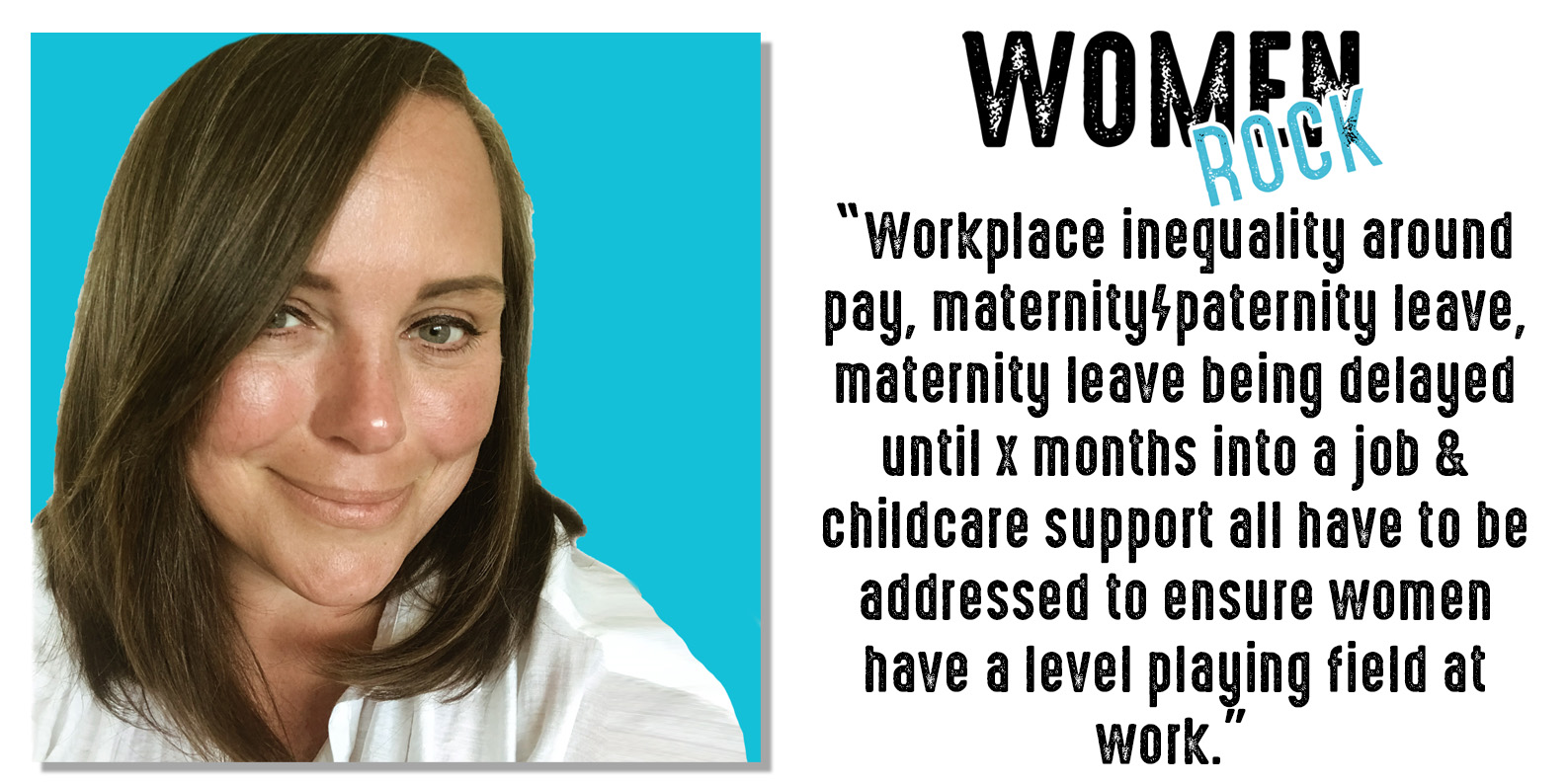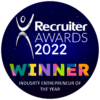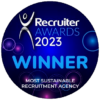
Ciara Conway | Opencast
Who remembers the first Apple Macintosh Computer at school? There was usually just one if your school was lucky enough to have the budget and IT lessons were basic computer literacy and productivity software, such as word processors and spreadsheets. It was hard to imagine how these learnings would ever translate into a career. Thankfully technology education has come on leaps and bounds and as this week’s interviewee Ciara Conway says if we “start them young!” we can attract a more diverse workforce in the world of tech.
Ciara herself has experienced some challenges being a woman in the tech industry and shares with us how these experiences have given her the strength and voice to speak up for herself and others in similar positions. Now Head of Architecture at Opencast, Ciara speaks passionately about the ‘Don’t Step Over the Milk” culture and is here to tell us all about the ‘OpenHouse’ Opencast will be hosting this month…
CAN YOU TELL US A LITTLE ABOUT WHAT YOU DO AT OPENCAST?
I am Head of Architecture at Opencast. I lead a team of Enterprise, Solution and Technical Architects. I have come to Opencast to help build and develop our Architecture Practice and ensure we have the right skills to support our diverse range of clients.
I GUESS WE SHOULD START AT THE BEGINNING OF YOUR TECH STORY, HOW DID YOU GET INTO THE INDUSTRY?
When I was growing up, we always had a computer in the house. I learned to program from quite a young age and always thought of it as a hobby and not as a career. Tech education in the 80s and 90s was lacking, and I couldn’t equate what we did in technical subjects to something that would translate into a career.
I tended towards more arts and language-based subjects, and I had an innate desire to travel. This led me to study French and Spanish at University. Although my dissertation did have a Neuro Linguistic Programming slant.
I finished university and moved to France almost immediately, followed by Spain and then Italy. I worked as a TEFL teacher and taught English to diverse groups of students. It was one of these students who offered me a job at an internet start-up.
This is where all the things I enjoyed started to converge. I was speaking Italian every day, I was programming, and I could see the relevance of all the skills I had developed through hobbies, passions, and education within a work context. I formalised my experience there by returning to university to read for a Masters in IT.
From here, my career blossomed. I gained more experience and experienced different technology roles until I found architecture. It’s always been the perfect role for me but, as they say, is the journey and not the destination that matters.
And they, whoever they are, are right! I gained so much experience and breadth in my career by trying new things and being open to my career moving in unexpected directions!
I QUITE OFTEN GET ASKED BY PEOPLE WHO ARE EMBARKING ON THEIR JOURNEY INTO THE INDUSTRY AND PEOPLE WHO ARE LOOKING TO BREAK INTO TECH, WHERE DO THEY START AND IF A UNIVERSITY DEGREE ESSENTIAL?
For those wanting to break into tech, it’s important to understand where you want to break into tech. If you want to be a developer, it’s a very different career pathway than that of a Technical Project Manager or technical business analyst.
Understanding the breadth of roles available in technology today and which ones spark your light is the most important place to start. Some of those roles may require formal education or accreditation and some may not.
When you have an idea of what kind of roles you want to target, look at the roles that will give you that experience and then look at the effort to get there. Make decisions based on the amount of time and effort you want to expend getting there.
AS A WOMAN IN TECHNOLOGY, HAVE YOU FACED ANY CHALLENGES OR BARRIERS IN YOUR CAREER?
Unfortunately, I have faced challenges and barriers in my career because of my gender. I have always been in male-dominated environments. I have frequently been the only woman in the team or in the whole department. There are a few ways this has impacted me. Earlier in my career, it did make me feel very isolated and I found myself trying to emulate my colleagues to ‘fit in’.
I have faced different levels of misogyny throughout my career. Comments like ‘Menopause isn’t a thing’, ‘Are you on your period?’, ‘When are you thinking of starting a family?’ and others were more prevalent in the early 2000s than they are now.
However, I have also been paid significantly less than my male equivalent on more than one occasion. It happened four times during my career (that I know of) and it ultimately has made me a more skilled negotiator, but it has created an economic disparity with my male equivalents over the span of my career that so many women experience in the industry.
I reflect on these moments in my career often. I wonder if I handled them all with the courage I have today and if I gave my consent to be made to feel inferior. I was frightened to complain in some of these male-dominated environments for fear I would lose my job and had rent to pay. I am more settled in my career now and not living pay cheque to pay cheque and it has strengthened my voice. I use it for myself and for those like me at the start of my career who need someone to rock the boat for them. I am glad I can pay it forward now.
DIVERSITY AND INCLUSION IS SOMETHING MANY COMPANIES WITHIN THE INDUSTRY ARE TRYING TO IMPROVE ON. WHAT DO YOU THINK CAN BE DONE TO HELP ATTRACT A MORE DIVERSE MIX OF PEOPLE INTO TECH?
Start them young! Early STEM programs are so important to introduce girls and young women to the breadth of exciting careers in the Technology sector. It’s very challenging ensuring diversity in an architecture team today when those women would need to have existed 10/15 years ago to be applying for a senior position today. In the early 2000s, only 30% of people studying technical subjects at university or college were women. With career drop-off due to the inequalities women face as a result of a number of mostly gender-related factors, this leaves an ever-dwindling pool of women who are applying for these roles.
Investing in pipeline talent, training and career-switching programs helps create that pipeline and helps a lot of women come into or come back to architecture (and other technical disciplines).
Workplace inequality around pay, maternity/paternity leave, maternity leave being delayed until x months into a job, and childcare support all have to be addressed to ensure that women have a level playing field at work. We also need to work as a society to remove biases pertaining to the roles that we assume people should play based on their gender.
CAN YOU TELL US A LITTLE BIT ABOUT THE OPEN HOUSE OPENCAST ARE RUNNING IN GLASGOW NEXT WEEK? WHAT SHOULD PEOPLE WHO WANT TO ATTEND EXPECT?
We are so excited to be officially opening our Glasgow office on 16th May 2023. We would love people to come along to find out more about who we are and what we do.
We are always looking for the best people to come and work in our incredible culture. The line that sums up our culture is ‘Don’t Step Over the Milk’. We are not a company burdened with hierarchy and no one is too important to step over the milk….or unpack the dishwasher!
We genuinely care about diversity, and we create a safe space in which people can be their authentic selves. There are many companies for whom culture is just a word. We really do have an amazing culture at Opencast that I like to call the ‘secret sauce’. Do come along to meet us in Glasgow and experience it first-hand!
WHAT MAKES YOU HAPPIEST IN YOUR FREE TIME?
I have always had about 100 hobbies all running at once and that’s what makes me happy! I love knitting, crocheting, painting and really anything artsy or craftsy. I sing in a number of choirs, and I absolutely love the camaraderie and excitement when we are preparing for a concert or a show. I love the great outdoors; walking and wild swimming but I draw the line at camping out!
WHAT IS YOUR FAVOURITE QUOTE OR A QUOTE YOU LIVE/WORK BY?
“No one can make you feel inferior without your consent” – Eleanor Roosevelt, former U.S. First Lady and U.S. Delegate to the United Nations.
Join Opencast to celebrate the opening of their Glasgow Hub on Tuesday 16 May, 6-8pm by saving your space here – Opencast OpenHouse.
Thanks Ciara – you rock 🤘
Interview by Sophie Eadon






